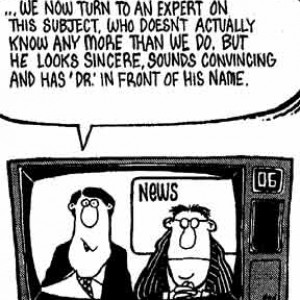How to write like an expert without sounding like a jerk

When I graduated high school, left home, and enrolled at Utah State University I thought I was prepared for just about anything. Naturally, I was all grown up, could take care of myself, and had learned everything I would need for college in high school.
I quickly learned this was not the case.
High school doesn’t prepare you to avoid all-night Halo parties when you have a midterm the next morning, teach you to cook your own meals instead of eating Beto’s 10 times per week, or how to unfreeze your car door when it’s below zero outside.
From my experience going into college thinking I knew it all, I decided that making the jump from college to my first public relations job was going to be different. Because of that decision, I probably learned my most important communications lesson while in my first year at SCPR.
Don’t get me wrong; I learned many things in college that have been critical to what I do now. But if I could recommend a course to the communications department at my alma mater it would be “How to write like an expert without sounding like a jerk”.
Like most people, the way others perceive me is important to me. For this purpose, I try to never sound condescending, mean, arrogant, etc. So for the first little while in my new job it was hard for me to assert my recommendations to clients, coworkers, or people in general.
Evidence of this was in my writing. I used words like “I feel”, “maybe”, “I think”, when giving a recommendation when I was supposed to be the expert. These words might not be aren’t inherently bad, but when used too often and over time they may diminish your credibility.
In public relations we take the same approach when establishing our clients or others as experts. For example, Russ Warner is the CEO of ContentWatch and is an Internet safety expert.
We would never coach Russ to say, “I think cyberbullying is hurtful and it might have a long term affect on some kids over their lifetime.”
Instead a much more effective sentence would be, “Cyberbullying is hurtful and has a long term affect on kids over their lifetime.” Not only is the sentence cleaner, it shows Russ really is an Internet safety expert. I use him as an example because he does an excellent job at sounding like an expert.
You can see other examples in this blog where words have a strike through them where before I would have written something that would have sounded apologetic, diffident, or self-effacing.
To appear as experts we must show confidence in our writing and speaking. A helpful hint for eliminating some of these words in your writing is to do a simple word search in the document for the trap words I have previously listed. You will see your speaking improve as well.
As long as you express yourself in a confident manner and never use your writing to belittle or humiliate another person, you are on your way to sounding like an expert while not being a jerk.
